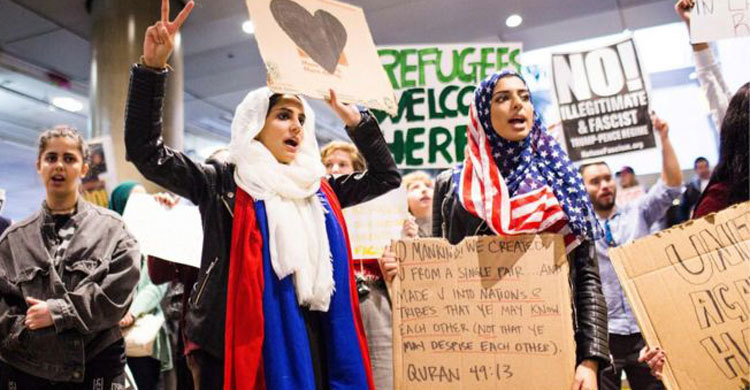Travel ban gets partial go-ahead

The Supreme Court Monday allowed parts of President Donald Trump’s travel ban to go into effect and will hear oral arguments on the case this fall.
The court is allowing the ban to go into effect for foreign nationals who lack any “bona fide relationship with any person or entity in the United States.”
The court, in an unsigned opinion, left the travel ban against citizens of six majority-Muslim on hold as applied to non-citizens with relationships with persons or entities in the United States, which includes most of the plaintiffs in both cases.
Examples of formal relationships include students accepted to US universities and an employee who has accepted a job with a company in the US, the court said.
This is the first time the high court has weighed in on the travel ban, and a partial victory for the Trump administration, which has been fighting lower court rulings blocking the ban from taking effect.
Trump himself has repeatedly criticized judges who sided against the travel ban and suggested the judicial system is against him and harming national security interests.
“The courts are slow and political!” Trump wrote in one of several tweets criticizing rulings from various federal judges this year.
“That’s right, we need a TRAVEL BAN for certain DANGEROUS countries, not some politically correct term that won’t help us protect our people,” Trump tweeted earlier this month.
This is Trump’s second attempt to install a travel ban.
The first executive order was issued one week into his term, and sought to bar people from Iran, Iraq, Libya, Somalia, Sudan, Syria, and Yemen from entering the US for 90 days and all refugees for 120 days.
After it was blocked by the courts, Trump tried again in March with a revised version that didn’t include Iraq and was meant to clarify problems of the first order that created uncertainty about the rights of dual citizens and holders of US visas. It has been blocked by the courts on both constitutional and statutory grounds.
Trump has called his second executive order “watered down,” and “politically correct.”
Conservative trio would have allowed full ban
Justice Clarence Thomas dissented with Justice Samuel Alito and newly-appointed Justice Neil Gorsuch, saying the court didn’t go far enough.
Thomas said he would have stayed the injunctions “in full,” adding the government is “likely to succeed on the merits.”
Thomas expressed concern with the “court’s remedy” and said he fears it will “prove unworkable.”
“Today’s compromise will burden executive officials with the task of deciding -- on peril of contempt -- whether individuals from the six affected nations who wish to enter the United States have a sufficient connection to a person or entity in this country,” he said.
Source: CNN


